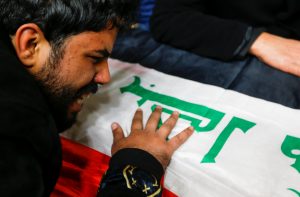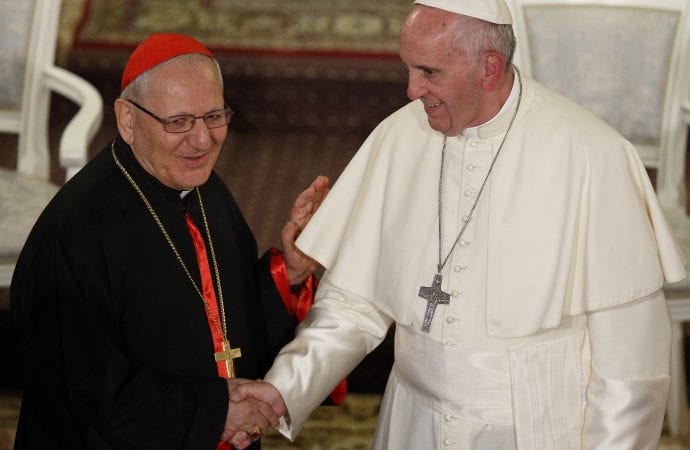ROME – Despite renewed security concerns after a series of recent terrorist attacks, one of Iraq’s top prelates has said preparations for Pope Francis’s upcoming visit are still underway, calling it a sign of hope that peace is possible in the war-torn nation.
On Jan. 21 two suicide bombs rocked a crowded second-hand clothing market in the Iraqi capital, leaving at least 32 people dead and 110 wounded. The attacks were the first of their kind in nearly two years.
Two days later, Jan. 23, the Iraqi Defense Ministry reported that three rockets had struck near Baghdad International Airport, two landing just outside the airport, and one on a home in the city’s Al-Jihad neighborhood.
Though no casualties were reported during the rocket strike, the incident sparked increased fear that such acts of violence and terrorism would increase, casting further doubt on the upcoming papal visit to Iraq, which was already dubious given the continued spread of the coronavirus pandemic and a delay in the rollout of vaccines.
In an interview with Vatican News, Cardinal Louis Raphaël Sako, Patriarch of Babylon of the Chaldeans, said plans for March 5-8 visit are still going forward, and that the Church is “preparing everything together with the government.”
“For everyone it is an extraordinary event,” Sako said. “The pope will come to say: enough, enough war, enough violence, seek peace and fraternity and the protection of human dignity.”
“In my opinion, he will bring two things: Comfort and hope, which until now have been denied to us,” Sako said, noting that the visit will have strong “spiritual connotations” and will be “a very important event for us Christians, but everyone in Iraq is waiting for this encounter, even Muslims, other religious realities and government leaders.”
Sako said he believes there was a “political motive” behind the attacks, which he said were meant to send “a message to the government and also to the new American president.”
Among Iraqi citizens, “There is great concern and also sadness,” he said, noting that the people who died in last week’s suicide bombings “were poor people, truly poor.”

Despite the recent flare up of violent attacks, Sako said people in Iraq still hold out hope for peace, even after decades of war and terrorism.
To achieve peace “takes time,” he said, “but before time it takes goodwill on the part of the politicians. If this is not there, there will be no peace. The militias must also obey the Iraqi government and the government must force the withdrawal of weapons. Everything must stay in the hands of the government and not political parties.”
Even if Christians weren’t the specific targets of this most recent spat of violence in Iraq, Sako said they are still suffering and fearful along with the rest of the population.
“We are part of Iraq, we don’t live alone, we are with everyone else. Their pain is ours, therefore we are brothers and sisters of a great family that is called Iraq,” he said.
Sako recently invited Christians in Iraq to join in a 3-day “Resurrection of Nineveh” event consisting of prayer and fasting for peace in Iraq.
With the initiative, Christians “want to say that we are all children of God, the God of all humanity,” Sako said, noting that the decision to center the event in Nineveh has a “double meaning” – namely, to affirm that God does not discriminate in his love, and to pray for an end to the coronavirus pandemic.
“Today we are living with a lot of fear of the coronavirus. Therefore, we must pray and ask for God’s help to be saved and so that this pandemic ends for the whole world,” he said, adding, “We think not just of ourselves in Iraq, but all men throughout the world.”

